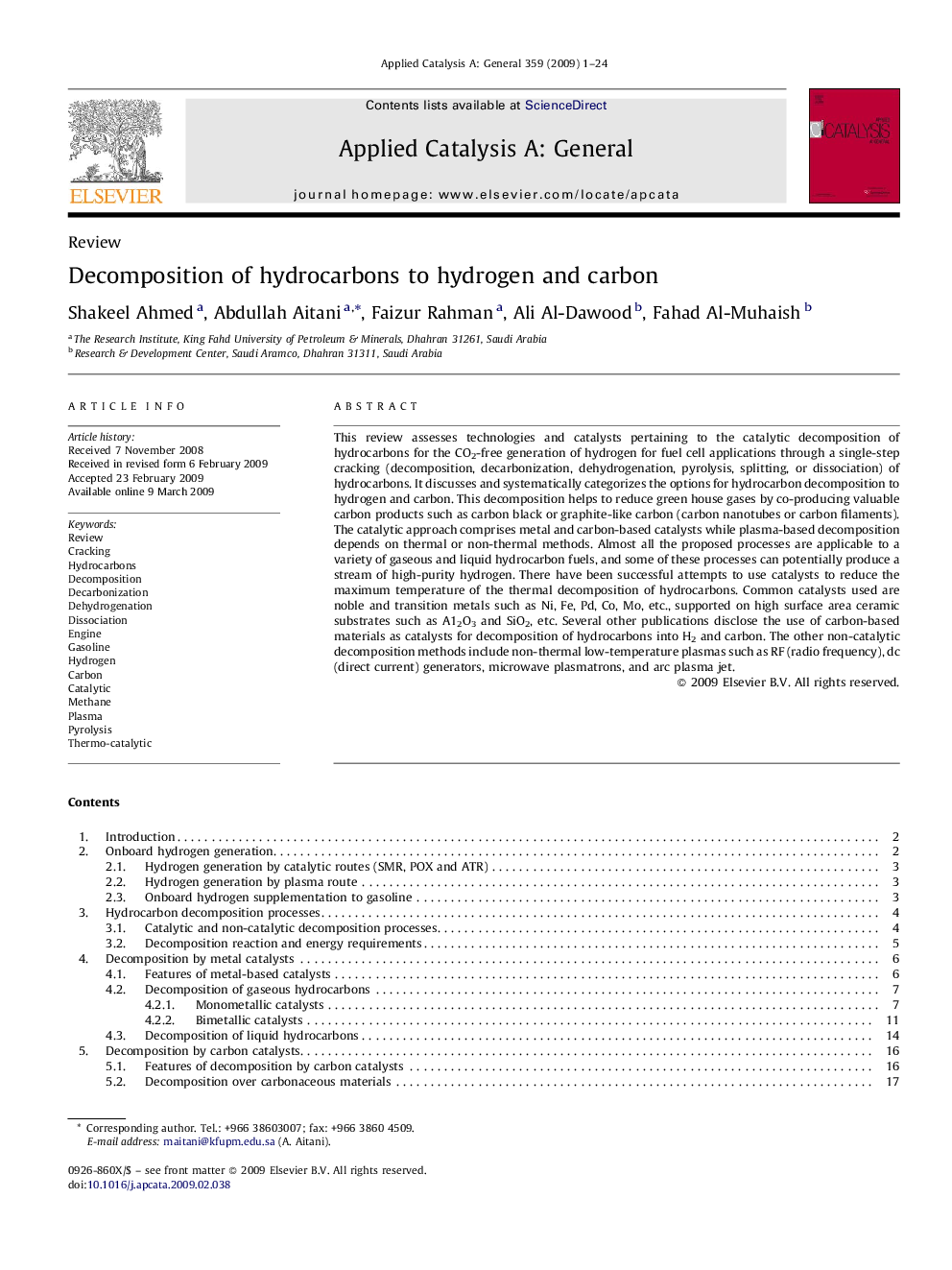| Article ID | Journal | Published Year | Pages | File Type |
|---|---|---|---|---|
| 42515 | Applied Catalysis A: General | 2009 | 24 Pages |
This review assesses technologies and catalysts pertaining to the catalytic decomposition of hydrocarbons for the CO2-free generation of hydrogen for fuel cell applications through a single-step cracking (decomposition, decarbonization, dehydrogenation, pyrolysis, splitting, or dissociation) of hydrocarbons. It discusses and systematically categorizes the options for hydrocarbon decomposition to hydrogen and carbon. This decomposition helps to reduce green house gases by co-producing valuable carbon products such as carbon black or graphite-like carbon (carbon nanotubes or carbon filaments). The catalytic approach comprises metal and carbon-based catalysts while plasma-based decomposition depends on thermal or non-thermal methods. Almost all the proposed processes are applicable to a variety of gaseous and liquid hydrocarbon fuels, and some of these processes can potentially produce a stream of high-purity hydrogen. There have been successful attempts to use catalysts to reduce the maximum temperature of the thermal decomposition of hydrocarbons. Common catalysts used are noble and transition metals such as Ni, Fe, Pd, Co, Mo, etc., supported on high surface area ceramic substrates such as A12O3 and SiO2, etc. Several other publications disclose the use of carbon-based materials as catalysts for decomposition of hydrocarbons into H2 and carbon. The other non-catalytic decomposition methods include non-thermal low-temperature plasmas such as RF (radio frequency), dc (direct current) generators, microwave plasmatrons, and arc plasma jet.
Graphical abstractDecomposition of hydrocarbons to CO2-free hydrogen and elemental carbon through single-step catalytic, thermal cracking, or plasma (decomposition, decarbonization, splitting, dissociation, or pyrolysis) of hydrocarbons.Figure optionsDownload full-size imageDownload as PowerPoint slide
